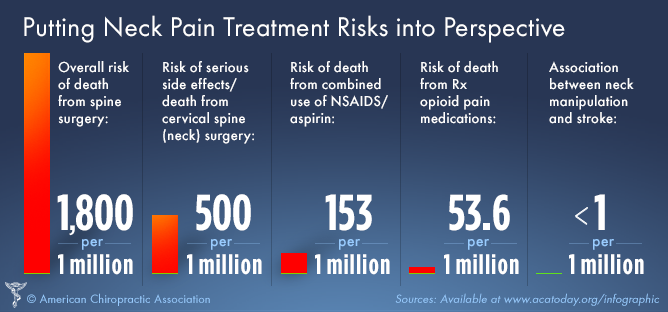The Impact Of Diet Plan On Pain In The Back Monitoring: Foods To Incorporate And Foods To Leave Out
The Impact Of Diet Plan On Pain In The Back Monitoring: Foods To Incorporate And Foods To Leave Out
Blog Article
Article Author-Mcclure Sharpe
When it pertains to handling your back pain, the food choices you make can substantially impact just how you feel each day. Envision being able to relieve your pain simply by adjusting what you consume. By comprehending the role of nutrition in back pain monitoring and knowing which foods to include or stay away from, you can take aggressive actions towards a much healthier and extra comfy way of life. The link in between nutrition and back health and wellness is extra extensive than you may understand-- let's check out exactly how particular foods can either soothe or aggravate your neck and back pain.
Relevance of Nourishment in Back Pain
Nourishment plays a vital role in managing pain in the back. Your diet can dramatically impact swelling degrees and total pain levels in your back. Eating a well balanced diet regimen rich in nutrients like vitamins D and K, calcium, magnesium, and omega-3 fats can help reduce inflammation and enhance bones, which are vital for back health and wellness.
Furthermore, preserving a healthy weight with proper nutrition can alleviate stress on your back, lowering the risk of pain in the back.
Moreover, certain nutrients like antioxidants located in vegetables and fruits can aid combat oxidative tension and promote recovery in the body, consisting of the back muscles and spine.
On the other hand, eating extreme amounts of refined foods, sugary drinks, and unhealthy fats can contribute to inflammation and weight gain, exacerbating back pain.
Foods to Eat for Back Health And Wellness
To support a healthy back, including nutrient-rich foods right into your daily dishes is crucial. Consisting of foods high in anti-oxidants like berries, spinach, and kale can help reduce inflammation in your back, alleviating pain and pain. Omega-3 fats found in fatty fish such as salmon and mackerel have anti-inflammatory residential properties that can benefit your back health.
Additionally, consuming nuts and seeds like almonds, walnuts, and chia seeds gives essential nutrients like magnesium and vitamin E, which sustain muscle function and decrease oxidative stress. Incorporating holistic doctor austin as hen, turkey, and tofu can help in muscular tissue repair work and upkeep, promoting a strong back.
Don't forget to consist of dairy or fortified plant-based choices for calcium to sustain bone wellness. Last but not least, moisten with plenty of water to keep your spinal discs moistened and functioning optimally. By consisting of these nutrient-dense foods in your diet, you can nurture your back and assistance overall back health and wellness.
Foods to Avoid for Pain In The Back
Opt for avoiding refined foods high in added sugars and trans fats when seeking relief from back pain. These sorts of foods can add to inflammation in the body, which may exacerbate back pain. Say no to integrative physical medicine like candy, breads, and sweet beverages, as well as convenience food products like burgers, fries, and fried hen that are typically packed with trans fats.
Additionally, stay away from foods containing high levels of refined carbs, such as white bread, pasta, and pastries, as they can spike blood sugar level levels and potentially intensify swelling in the body.
It's also smart to limit your intake of foods high in saturated fats, like red meat and full-fat dairy items, as they can contribute to inflammation. Processed foods like delicatessens meats, chips, and packaged treats are usually high in saturated fats and need to be consumed in small amounts.
Verdict
Finally, paying attention to your diet plan and making wise food selections can have a considerable influence on handling back pain. By including nutrient-rich foods like berries, fatty fish, nuts, and lean proteins, and avoiding refined and sugary things, you can help reduce inflammation and support overall back health and wellness. Bear in mind, what you consume plays an important duty in how you really feel, so make sure to prioritize your nutrition for a healthier back.
